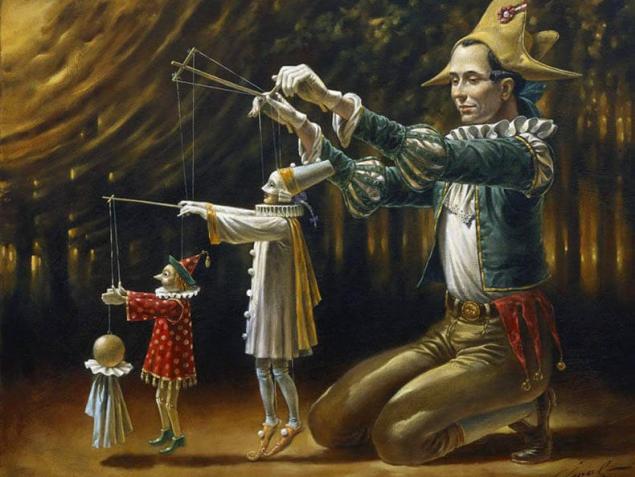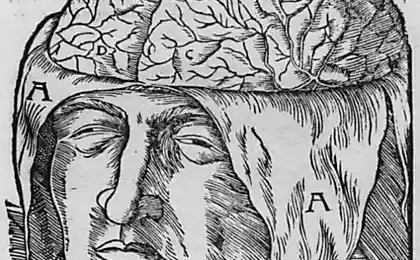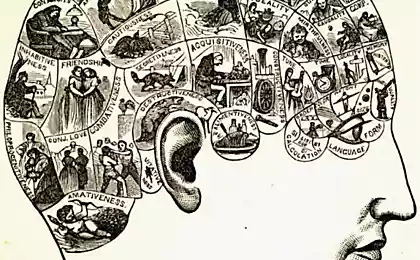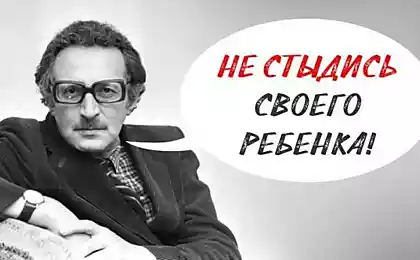404
The psychology of suggestion
At all stages of human life were attempts of one person or group of persons to influence others. Examples are various religious, political, economic, military and other organizations that are trying to manipulate the human psyche.
The suggestion is the influence of one person to another to create a certain condition or inducement to certain actions; thus it is necessary to distinguish it from the concept of persuasion. The belief is characterized by the logic of his arguments and opinions, we have facts, he needs clarity of mind. The suggestion enters the mind of man freely, without being subjected to criticism and discussion.

The suggestion effect often occurs as a result of media activities (advertising, propaganda), and its effectiveness depends on the credibility of the subject of influence, be it the television, Internet resource, typographical, publishing or another example is the therapist using a suggestion in psychological practice.
In this regard, it is worth noting that the bigger the crowd, susceptible to suggestion, the heavier the individual the individual to resist the flow of pseudo-facts that live in it.
Ph. D. and mate, Carl Jung, Maria Louise von Franz (1915-1998), who after the death of his teacher, the main mouthpiece of his ideas in the book "Man and his symbols" (1961), written in collaboration with Jung and his other followers, writes: "Attempts to influence public opinion through Newspapers, radio, television and advertising are based on two factors.
On the one hand, they are based on selection mechanisms and identify trends prevailing opinions or desires, that is, the collective sentiment. On the other hand, they reflect the prejudices, projections, and unconscious complexes (mainly the power complex) of those who manipulate public opinion".
The suggestion can be divided into two types – a suggestion:
a) in the waking state,
b) in hypnosis.
Suggestion in the waking state, depending on the "tool" suggestion can be divided into real and verbal. For real I understand the suggestion, produced by the action or other non-spoken method, accordingly, the suggestion produced speech is called verbal. According to another classification approach, suggestion in the waking state can be divided into direct and indirect.
Direct suggestion is the impact on a person's direct speech, which carries a certain verbal meaning or order. Indirect (or indirect, hidden) suggestion on the inspired influence not directly, but through the use of a certain situation, procedure, object, etc.
An example of this type of suggestion can be a situation when a person is given a pill from a neutral substance (chalk, flour, etc.) and report that this medication. The effect in most cases is guaranteed. In addition, it is important to distinguish between: a suggestion – the influence of one person to another and autosuggestion – self-hypnosis, which according to research can be voluntary and involuntary.
The founder of psychoanalysis Sigmund Freud (1856-1939) in his psychological practice used hypnosis, but later abandoned direct hypnotic suggestion, because they saw in it an encroachment on human freedom and an obstacle to the knowledge of the nature of painful symptoms. Indirect and unintentional suggestion he called a "fiduciary expectation" and believed that "there is a factor that depends on the mental state of the patient." In his work "group Psychology and the analysis human "I"" (1921) he noted that the suggestion is the original and ineradicable fact of human mental life.

Suggestibility is the individual susceptibility non-critical impacts others. Depending on the degree of suggestibility, suggestible allocate, malololailai and nevnushaemyh people do. Suggestible people are easily seduced by the instructions and advice of other persons, even if these tips are contrary to their own interests and beliefs. This type of people easily adopts the mood and habits of others, until the appearance of the tendency to imitate.
Heightened suggestibility characteristic of children of preschool and younger school age and also for people with weak type of higher nervous activity (melancholic temperament) and accentuated personality: anxious, emotive. Takes place the fact that quite ordinary people with fatigue, traumatic and post-traumatic stress, after illness, especially related to the nervous system, are increased suggestible.
Conditions of uncertainty (revolutionary periods, wars, natural disasters) also contribute to suggestibility. Of great importance is the belief in a certain idea — having faith in something, people do not resist outside influence.
Thus, the degree of suggestibility varies according the number of factors with man to become the object of suggestion and it is situational-variable in nature.published
P. S. And remember, only by changing their consumption — together we change the world! ©
Join us in Facebook , Vkontakte, Odnoklassniki
Source: psychojournal.ru/article/37-psihologiya-vnusheniya.html
The suggestion is the influence of one person to another to create a certain condition or inducement to certain actions; thus it is necessary to distinguish it from the concept of persuasion. The belief is characterized by the logic of his arguments and opinions, we have facts, he needs clarity of mind. The suggestion enters the mind of man freely, without being subjected to criticism and discussion.

The suggestion effect often occurs as a result of media activities (advertising, propaganda), and its effectiveness depends on the credibility of the subject of influence, be it the television, Internet resource, typographical, publishing or another example is the therapist using a suggestion in psychological practice.
In this regard, it is worth noting that the bigger the crowd, susceptible to suggestion, the heavier the individual the individual to resist the flow of pseudo-facts that live in it.
Ph. D. and mate, Carl Jung, Maria Louise von Franz (1915-1998), who after the death of his teacher, the main mouthpiece of his ideas in the book "Man and his symbols" (1961), written in collaboration with Jung and his other followers, writes: "Attempts to influence public opinion through Newspapers, radio, television and advertising are based on two factors.
On the one hand, they are based on selection mechanisms and identify trends prevailing opinions or desires, that is, the collective sentiment. On the other hand, they reflect the prejudices, projections, and unconscious complexes (mainly the power complex) of those who manipulate public opinion".
The suggestion can be divided into two types – a suggestion:
a) in the waking state,
b) in hypnosis.
Suggestion in the waking state, depending on the "tool" suggestion can be divided into real and verbal. For real I understand the suggestion, produced by the action or other non-spoken method, accordingly, the suggestion produced speech is called verbal. According to another classification approach, suggestion in the waking state can be divided into direct and indirect.
Direct suggestion is the impact on a person's direct speech, which carries a certain verbal meaning or order. Indirect (or indirect, hidden) suggestion on the inspired influence not directly, but through the use of a certain situation, procedure, object, etc.
An example of this type of suggestion can be a situation when a person is given a pill from a neutral substance (chalk, flour, etc.) and report that this medication. The effect in most cases is guaranteed. In addition, it is important to distinguish between: a suggestion – the influence of one person to another and autosuggestion – self-hypnosis, which according to research can be voluntary and involuntary.
The founder of psychoanalysis Sigmund Freud (1856-1939) in his psychological practice used hypnosis, but later abandoned direct hypnotic suggestion, because they saw in it an encroachment on human freedom and an obstacle to the knowledge of the nature of painful symptoms. Indirect and unintentional suggestion he called a "fiduciary expectation" and believed that "there is a factor that depends on the mental state of the patient." In his work "group Psychology and the analysis human "I"" (1921) he noted that the suggestion is the original and ineradicable fact of human mental life.

Suggestibility is the individual susceptibility non-critical impacts others. Depending on the degree of suggestibility, suggestible allocate, malololailai and nevnushaemyh people do. Suggestible people are easily seduced by the instructions and advice of other persons, even if these tips are contrary to their own interests and beliefs. This type of people easily adopts the mood and habits of others, until the appearance of the tendency to imitate.
Heightened suggestibility characteristic of children of preschool and younger school age and also for people with weak type of higher nervous activity (melancholic temperament) and accentuated personality: anxious, emotive. Takes place the fact that quite ordinary people with fatigue, traumatic and post-traumatic stress, after illness, especially related to the nervous system, are increased suggestible.
Conditions of uncertainty (revolutionary periods, wars, natural disasters) also contribute to suggestibility. Of great importance is the belief in a certain idea — having faith in something, people do not resist outside influence.
Thus, the degree of suggestibility varies according the number of factors with man to become the object of suggestion and it is situational-variable in nature.published
P. S. And remember, only by changing their consumption — together we change the world! ©
Join us in Facebook , Vkontakte, Odnoklassniki
Source: psychojournal.ru/article/37-psihologiya-vnusheniya.html























